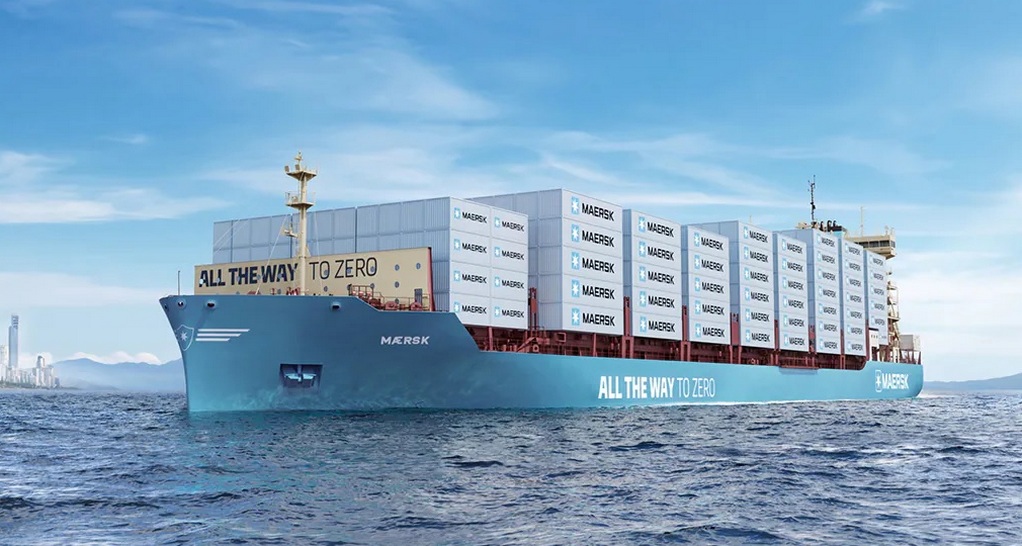Maersk has deployed its latest and largest methanol-powered ship on the transoceanic weekly route between the Port of Gothenburg and Asia. This means that the Port of Gothenburg now has two methanol-powered container ships that regularly call at the port.
The new ship, Antonia Maersk, with a cargo capacity of 16,592 TEU (twenty-foot equivalent units), was christened in Aarhus in August. The ship is now in service on the AE5/Albatross route, which is part of the 2M shipping alliance. With its weekly service between the Port of Gothenburg and Asia, the route forms an important connection for the Swedish and Scandinavian import and export industry. After its maiden call at the Port of Gothenburg, the ship is currently on its journey to ports in Southeast Asia.
Antonia Maersk is powered by bio-methanol, which means a savings of 280 tons of carbon dioxide each day the ship is in operation, according to Maersk’s own data. The daily savings are equivalent to the emissions of a truck with a trailer driving around the world more than six times.
Earlier this spring, the smaller methanol-powered ship Laura Maersk started calling at the Port of Gothenburg on an intra-European shipping route between Gothenburg and Bremerhaven. Antonia Maersk and Laura Maersk are both propelled by bio-methanol.
Methanol is a liquid fuel at normal temperatures, which makes it easy to handle for shipping. The handling of the fuel follows well-established safety procedures and has been managed at the Port of Gothenburg since 2015. Bio-methanol reduces CO2 emissions by approximately 65% compared to conventional fuels.
Today, there are about 30 methanol-powered container ships in operation, and nearly 300 more are on order from various shipping companies. Methanol-powered ships account for about 10% of the total order book today.
At the Port of Gothenburg, efforts are systematic and long-term to create conditions for the transition of shipping to a mix of renewable fuels, where methanol is a key component. The port aims to be able to store, handle, and provide a variety of renewable fuels, with the goal of becoming Scandinavia’s largest hub for renewable energy.
Tags: Asia, Maersk, Methanol, Port of gothenburg, Service



Recent Posts
Höegh Autoliners’ Fifth Aurora-Class PCTC Enters Service with Multi-Fuel Capability
Next-Gen Marine Propulsion: MAN Launches Methanol Super Engine
Port of Amsterdam Marks First Ship-to-Ship Methanol Bunkering
Altair and HD Hyundai Heavy Industries Partner to Propel AI-Driven Eco-Friendly Marine Engine Innovation
Newfoundland and Port of Amsterdam Forge Green Hydrogen Partnership
India charts green shipping path: MEPC 83 outcomes discussed at IMEI-DG tech seminar
IME(I) Mumbai pioneers holistic development for future mariners with emotional resilience workshop
Adani launches India’s first hydrogen-powered truck